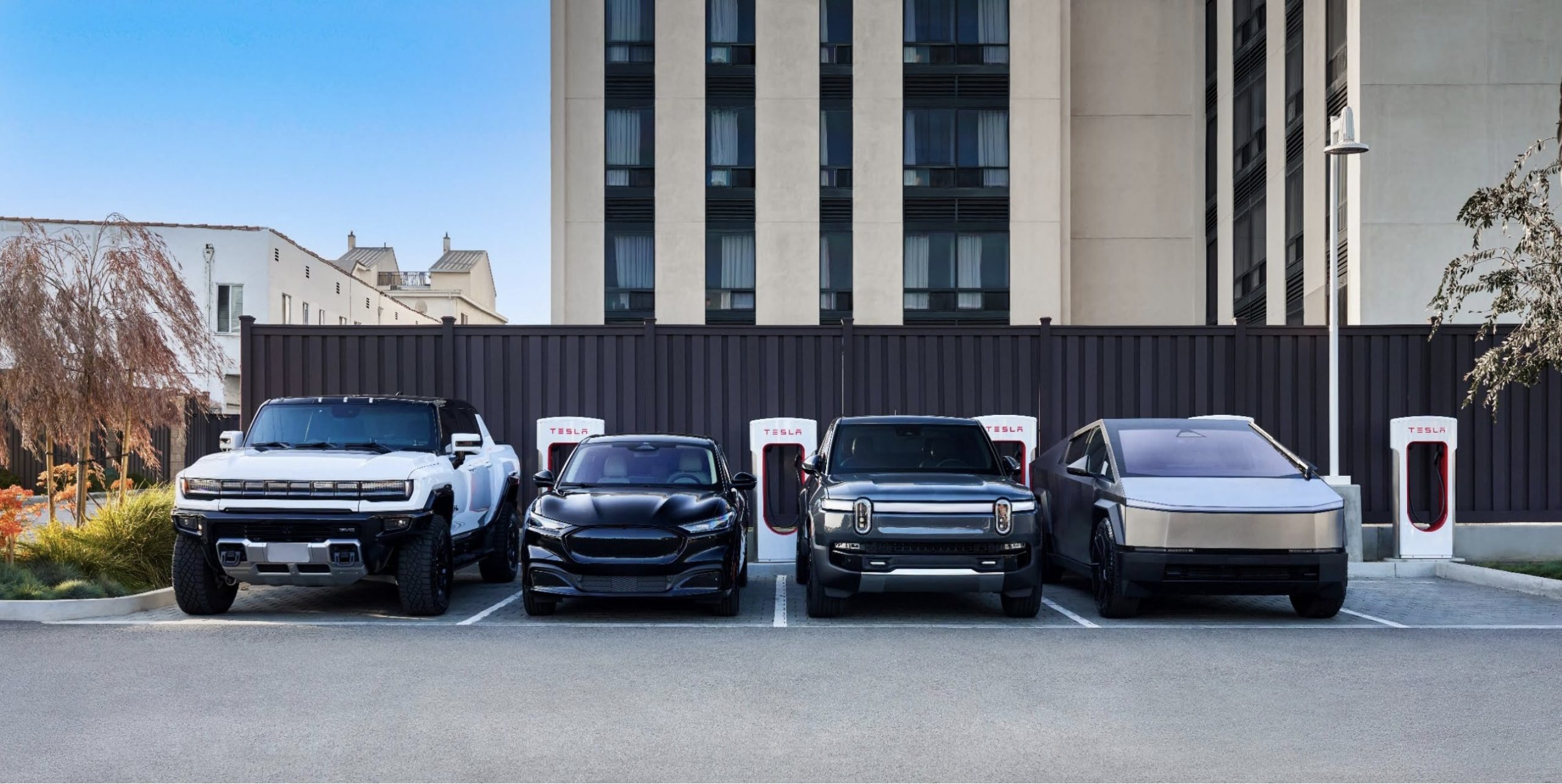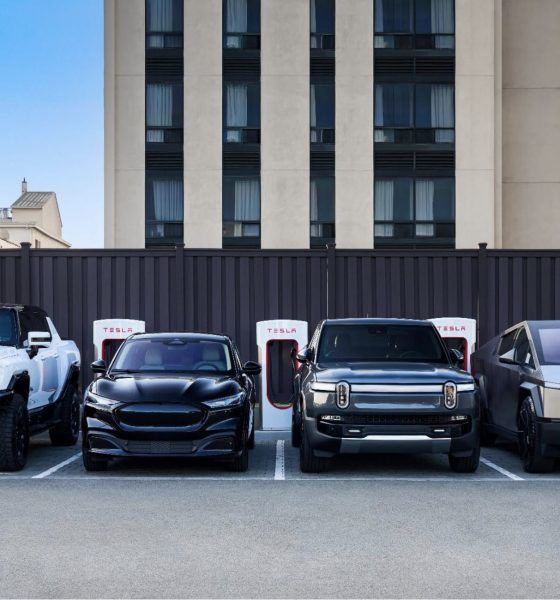U.S. President Donald Trump formally launched tariffs on imports from Canada, Mexico, and China over the weekend, a decision that is widely expected to have sweeping implications for Tesla, other automakers, and a broad range of other industries.
The Trump administration announced the news on Saturday, effectively establishing a 25-percent tariff on Canadian and Mexican imports as well as a 10-percent tariff on products from China. The tariffs will go into effect on Tuesday, and they have already caused ripple effects and a larger trade war with some of the companies.
Canada Prime Minister Justin Trudeau and Mexico President Claudia Sheinbaum spoke on the phone over the weekend, and while Sheinbaum hasn’t yet formalized or disclosed plans for counter-tariffs, Trudeau announced some on Saturday evening, according to Reuters. In the announcement, the Prime Minister said that Canada with also establish a 25-percent tariff on $155 billion worth of products from the U.S.
Trudeau has said that the government will release an updated list of products and tariff details, though the initial list included products such as certain appliances, beer, wine, lumber and other goods. He also says that the government plans to start with $30 billion on Tuesday, as followed by the additional $125 billion later this month.
The Trump administration says the tariffs are aimed at “addressing an emergency situation” related to the import of illegal drugs including fentanyl, along with pointing the blame at illegal immigrants.
“President Trump is taking bold action to hold Mexico, Canada, and China accountable to their promises of halting illegal immigration and stopping poisonous fentanyl and other drugs from flowing into our country,” the White House writes on its fact sheet dedicated to the order.
You can see the full fact sheet from the White House here, or check out the full executive order here.
Tesla joins group of automakers suing EU for EV tariffs from China-built cars
READ MORE ON U.S. PRODUCTION: Tesla Texas lithium refinery produces its first spodumene
Trump follows up, auto workers weigh in on how tariffs will affect the industry
On Sunday, Trump also followed up with a post on his Truth Social account in response to criticism:
The USA has major deficits with Canada, Mexico, and China (and almost all countries!), owes 36 Trillion Dollars, and we’re not going to be the “Stupid Country” any longer. MAKE YOUR PRODUCT IN THE USA AND THERE ARE NO TARIFFS! Why should the United States lose TRILLIONS OF DOLLARS IN SUBSIDIZING OTHER COUNTRIES, and why should these other countries pay a small fraction of the cost of what USA citizens pay for Drugs and Pharmaceuticals, as an example? THIS WILL BE THE GOLDEN AGE OF AMERICA! WILL THERE BE SOME PAIN? YES, MAYBE (AND MAYBE NOT!). BUT WE WILL MAKE AMERICA GREAT AGAIN, AND IT WILL ALL BE WORTH THE PRICE THAT MUST BE PAID.
Following a repost of Trump’s words on X, community notes pointed to a TD Economics saying that the U.S. has had a trade surplus with Canada for the last sixteen years straight when not including the energy sector, or oil, natural gas and electricity.
Multiple others have weighed in on how the tariffs could affect the industry at large, highlighting the potential for price increases for the consumer, potential layoffs, and some even saying that it will shut the auto industry down altogether.
In a report from Bloomberg on Sunday, Flavio Volpe, the President of the Canada Automotive Parts Manufacturers’ Association, said that he doesn’t think the country’s auto parts makers will be able to remain profitable with the tariffs in place.
“The auto sector is going to shut down within a week,” Volpe said. “At 25 percent, absolutely nobody in our business is profitable by a long shot.”
Others have warned of even more immediate effects, especially for Canadian and Mexican cities and states whose communities rely heavily on automotive manufacturing. One such city includes Windsor, Ontario, where John D’Agnolo, the union president of a local Ford factory there, says substantial numbers of layoffs could be imminent.
“We’re talking about thousands and thousands of jobs being lost,” D’Agnolo said. “We’d truly be a ghost town, here in Windsor, if we lost this type of business.”
Ontario Premier Doug Ford has also warned that it could affect as many as 500,000 jobs across the province, which is Canada’s most populated, with many of those being automotive roles.
Many also expect the increased costs to be passed onto the consumer, though it’s still unclear exactly what the repercussions of the tariffs could be. We could also see businesses absorb some or all of these costs, though some initial research seems to suggest that buyers will see higher sticker prices across the industry.
“It is going to be a lot of impact,” Aruna Anand, chief executive officer of parts supplier Continental AG’s North American business, said in an interview. “The question is who is absorbing the price and it becomes, are we able to absorb that price or is it going to be shifted to the end consumer?”
In a separate report from Reuters on Saturday, it was suggested that automakers such as General Motors (GM) and Toyota could, however, shift more production from overseas factories to those in the U.S., while major aluminum manufacturer Alcoa is considering re-routing plans that could potentially reduce tariffs. Many electric vehicle (EV) battery materials also come from metal mining operations in China, with some of these sectors just beginning to emerge domestically.
Others also report that the move could “undermine competitiveness” in the American auto industry, ultimately increasing the cost of building cars in the U.S.
“Our American automakers … should not have their competitiveness undermined by tariffs that will raise the cost of building vehicles in the United States and stymie investment in the American workforce,” says Matt Blunt, the President of the American Automotive Policy Council, which represents Stellantis, GM and Ford.
During Tesla’s Q4 earnings call last week, Chief Financial Officer Vaibhav Taneja also warned that tariffs could affect profitability for the company, since its all of its production facilities utilize parts from around the globe.
“There’s a lot of uncertainty around tariffs,” Taneja said. “Over the years, we’ve tried to localize our supply chain in every market, but we are still very reliant on parts from across the world for all our businesses. Therefore, the imposition of tariffs, which is very likely, will have an impact on our business and profitability.”
It’s still not quite clear at this time how the tariffs may affect Tesla’s prices. While Tesla has regularly advertised having the “most American-made cars” with final assembly for the market taking place at its factories in Texas and California, the company also gets a significant amount of components from Canada.
In a filing with the National Highway Traffic Safety Administration (NHTSA) in October, Tesla did disclose what percentage of its vehicle parts are made in either Canada or the U.S., as compared to other countries such as Mexico and Japan. Some of the figures also don’t disclose where the remaining amounts come from, though they can give users an idea of how many components come from Mexico compared to either the U.S. or Canada.
You can see that data for Tesla’s vehicles below, though it’s also worth noting that it does not show the ratio of U.S. to Canadian parts—just a combined percentage from the two countries. You can also view the full filing from the NHTSA here.
- Cybertruck: 65 percent from U.S. and Canada; 25 percent from Mexico
- Model 3 Long Range: 75 percent from U.S. and Canada; 20 percent from Mexico
- Model 3 Performance: 70 percent from U.S. and Canada; 20 percent from Mexico
- Model Y (all trims): 70 percent from U.S. and Canada; 25 percent from Mexico
- Model S: 65 percent from U.S. and Canada; 20 percent from Mexico
- Model X: 60 percent from U.S. and Canada; 25 percent from Mexico
What are your thoughts? Let me know at zach@teslarati.com, find me on X at @zacharyvisconti, or send us tips at tips@teslarati.com.
Tesla Mexico nearshoring concerns brought up by CMIC presidential candidate
Need accessories for your Tesla? Check out the Teslarati Marketplace:

Elon Musk
Tesla ramps Cybercab test manufacturing ahead of mass production
Tesla still has plans for volume production, which remains between four and eight weeks away, aligning with Musk’s statements that early ramps would be deliberately measured given the Cybercab’s novel architecture and full reliance on Tesla’s vision-based Full Self-Driving technology.
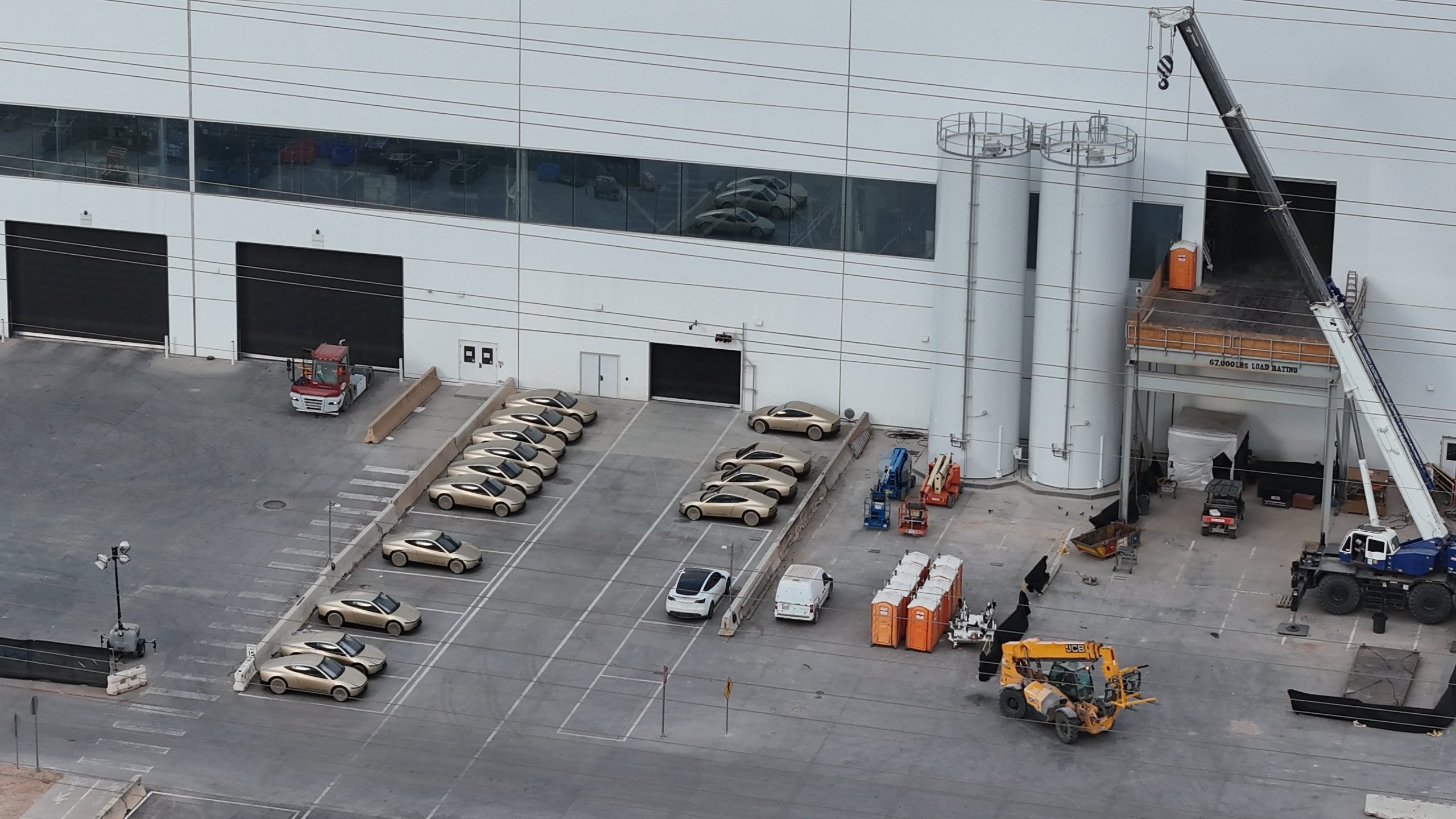
Tesla is seemingly ramping Cybercab test manufacturing ahead of mass production, which is scheduled to begin next month, the company said.
At Tesla’s Gigafactory Texas, production of the Cybercab, the company’s groundbreaking purpose-built Robotaxi vehicle, is accelerating markedly. Drone footage from Joe Tegtmeyer captured striking aerial footage today, revealing what appears to be the largest public sighting of Cyebrcabs to date.
A total of 25 units were observed by Tegtmeyer across the Gigafactory Texas property, marking a clear step-up in testing and validation activities as Tesla prepares for a broader output.
Tesla Cybercab production begins: The end of car ownership as we know it?
In the footage, 14 metallic gold Cybercabs were parked in a tight formation outside the factory exit, showcasing their sleek, autonomous-only design with no steering wheels, pedals, or traditional controls. Another 9 units sat at the crash testing facility, likely undergoing structural and safety validations, while two more appeared at the west end-of-line area for final checks.
Big day for Cybercab at Giga Texas today! Actually, yesterday to kick off March, the production line went into a higher volume & today we see 25 at three main locations, and there were several others I observed driving around too!
I think this may be the largest single grouping… pic.twitter.com/HZDMNv57lJ
— Joe Tegtmeyer 🚀 🤠🛸😎 (@JoeTegtmeyer) March 3, 2026
Tegtmeyer noted additional Cybercabs driving around the complex, hinting at active movement and real-world testing beyond static parking.
This surge follows the first production Cybercab rolling off the line in mid-February 2026, several weeks ahead of the originally anticipated April start.
That milestone, celebrated by Tesla employees and confirmed by CEO Elon Musk, kicked off low-volume builds on the dedicated “unboxed” manufacturing line, a modular process designed to slash costs, reduce factory footprint, and enable faster assembly compared to conventional methods.
Industry observers interpret the jump to dozens of visible units in early March as evidence that Tesla has transitioned into higher-volume test manufacturing.
Tesla still has plans for volume production, which remains between four and eight weeks away, aligning with Musk’s statements that early ramps would be deliberately measured given the Cybercab’s novel architecture and full reliance on Tesla’s vision-based Full Self-Driving technology.
The Cybercab, envisioned as a sub-$30,000 autonomous two-seater for robotaxi fleets, represents Tesla’s bold pivot toward scalable autonomy and robotics.
Tesla fans and enthusiasts on X praised the imagery, with many expressing excitement over the visible progress toward deployment. While challenges remain, including software maturity, regulatory hurdles, and supply chain scaling, the increased factory activity underscores Tesla’s momentum in turning the Cybercab vision into reality.
As Giga Texas continues expanding and refining the manufacturing process of the Cybercab, the coming months will prove to be a pivotal time in determining how quickly this revolutionary vehicle reaches roads in the U.S. and internationally.
Elon Musk
SpaceX to launch Starlink V2 satellites on Starship starting 2027
The update was shared by SpaceX President Gwynne Shotwell and Starlink Vice President Mike Nicolls.
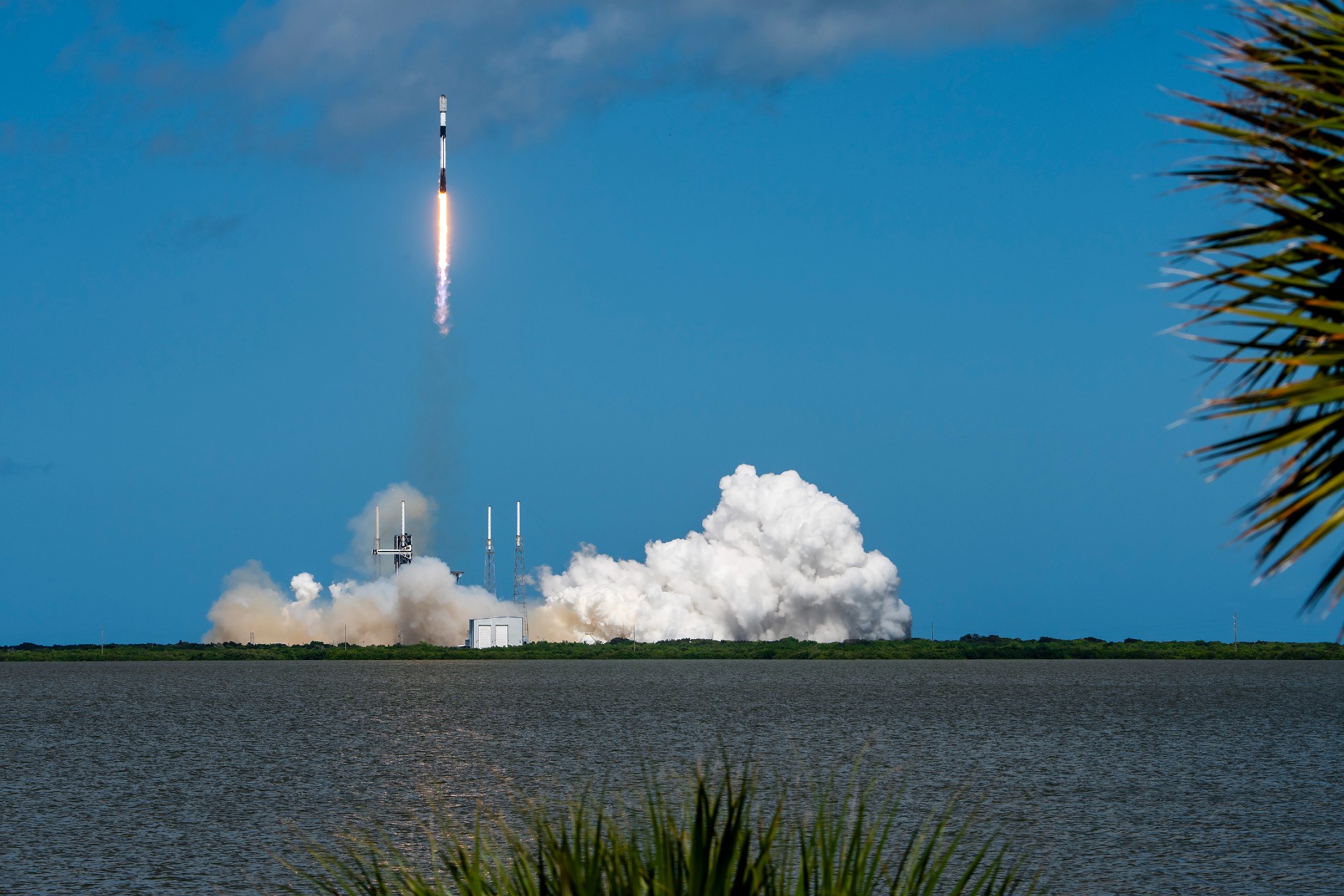
SpaceX is looking to start launching its next-generation Starlink V2 satellites in mid-2027 using Starship.
The update was shared by SpaceX President Gwynne Shotwell and Starlink Vice President Mike Nicolls during remarks at Mobile World Congress (MWC) in Barcelona, Spain.
“With Starship, we’ll be able to deploy the constellation very quickly,” Nicolls stated. “Our goal is to deploy a constellation capable of providing global and contiguous coverage within six months, and that’s roughly 1,200 satellites.”
Nicolls added that once Starship is operational, it will be capable of launching approximately 50 of the larger, more powerful Starlink satellites at a time, as noted in a Bloomberg News report.
The initial deployment of roughly 1,200 next-generation satellites is intended to establish global and contiguous coverage. After that phase, SpaceX plans to continue expanding the system to reach “truly global coverage, including the polar regions,” Nicolls said.
Currently, all Starlink satellites are launched on SpaceX’s Falcon 9 rocket. The next-generation fleet will rely on Starship, which remains in development following a series of test flights in 2025. SpaceX is targeting its next Starship test flight, featuring an upgraded version of the rocket, as soon as this month.
Starlink is currently the largest satellite network in orbit, with nearly 10,000 satellites deployed. Bloomberg Intelligence estimates the business could generate approximately $9 billion in revenue for SpaceX in 2026.
Nicolls also confirmed that SpaceX is rebranding its direct-to-cell service as Starlink Mobile.
The service currently operates with 650 satellites capable of connecting directly to smartphones and has approximately 10 million monthly active users. SpaceX expects that figure to exceed 25 million monthly active users by the end of 2026.
Elon Musk
Elon Musk’s xAI and X to pay off $17.5B debt in full: report
The update was shared initially in a report from Bloomberg News, which cited people reportedly familiar with the matter.
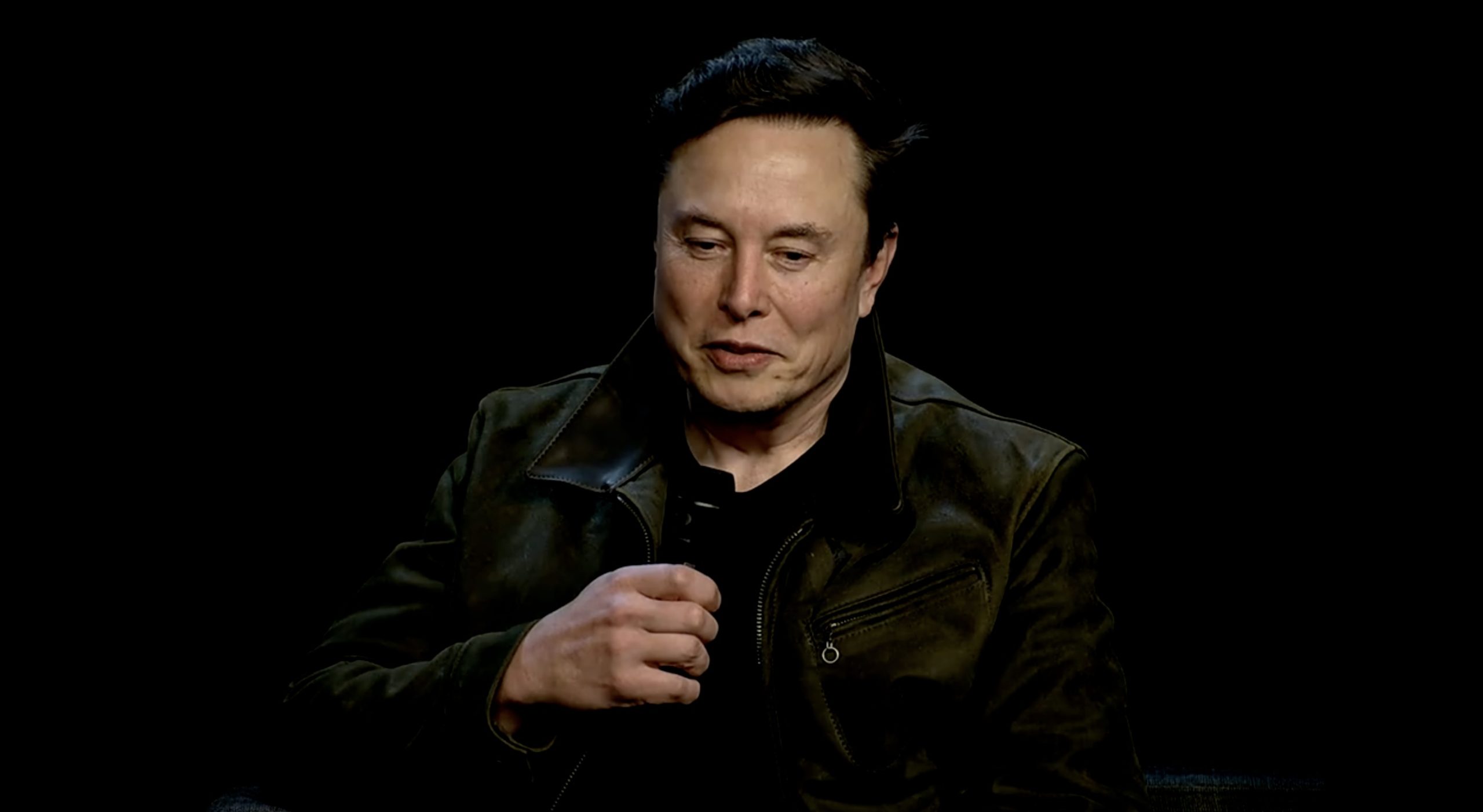
Elon Musk’s social platform X and artificial intelligence startup xAI are reportedly preparing to repay approximately $17.5 billion in outstanding debt in full.
The update was shared initially in a report from Bloomberg News, which cited people reportedly familiar with the matter.
Morgan Stanley, which arranged the debt financing for both companies, has reportedly informed existing lenders that X and xAI plan to pay back the full amount of the $17.5 billion debt. Bloomberg’s sources did not disclose where the capital for the repayment would be coming from.
X, formerly known as Twitter, assumed roughly $12.5 billion in debt during Musk’s acquisition of the company. xAI separately borrowed about $5 billion through bonds and loans last June. The two firms merged last year under xAI Holdings.
Bloomberg noted that portions of the debt are relatively recent and may carry early repayment penalties. xAI’s $3 billion in high-yield bonds are expected to be redeemed at 117 cents on the dollar, reflecting a premium since the debt was expected to stay outstanding for at least two years.
X has been servicing tens of millions of dollars in monthly debt payments, while xAI has reportedly been burning approximately $1 billion in cash per month as it invests heavily in data centers, chips, and AI talent. That being said, xAI also concluded a funding round in January, where it raised $20 billion of new equity.
The repayment plans come as Musk consolidates several of his businesses. SpaceX recently acquired xAI, making it a subsidiary as the company explores plans for space-based data centers. The combined entity has been valued at approximately $1.25 trillion.
Bloomberg previously reported that SpaceX is targeting a confidential IPO filing as soon as this month, potentially positioning the private space firm for a public listing later this year. Representatives for Morgan Stanley declined to comment, and X and xAI did not immediately respond to requests for comment.
